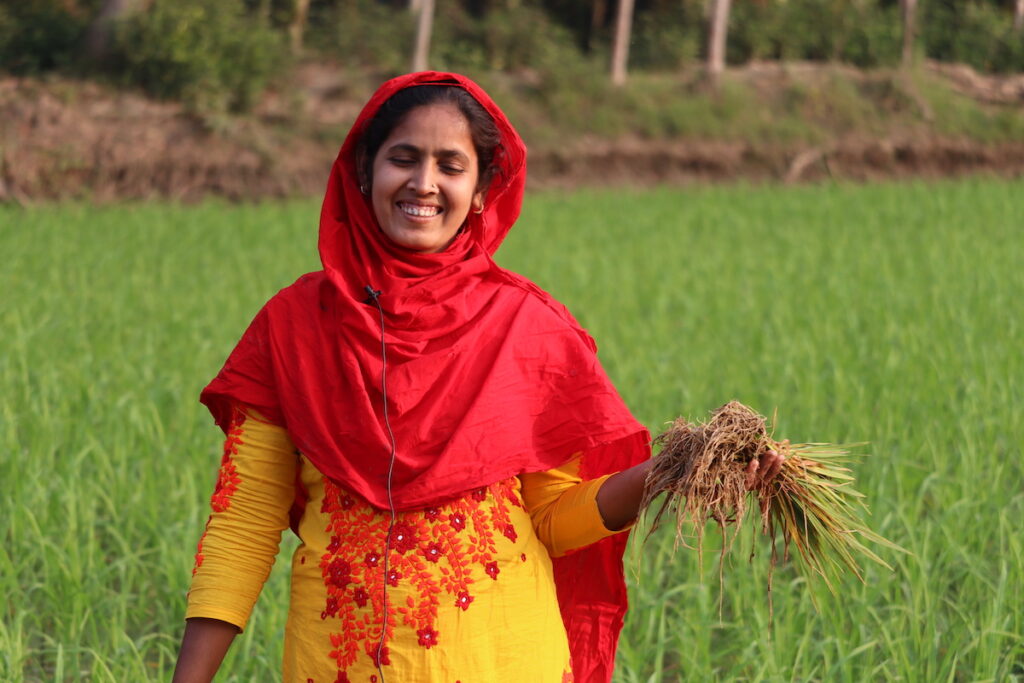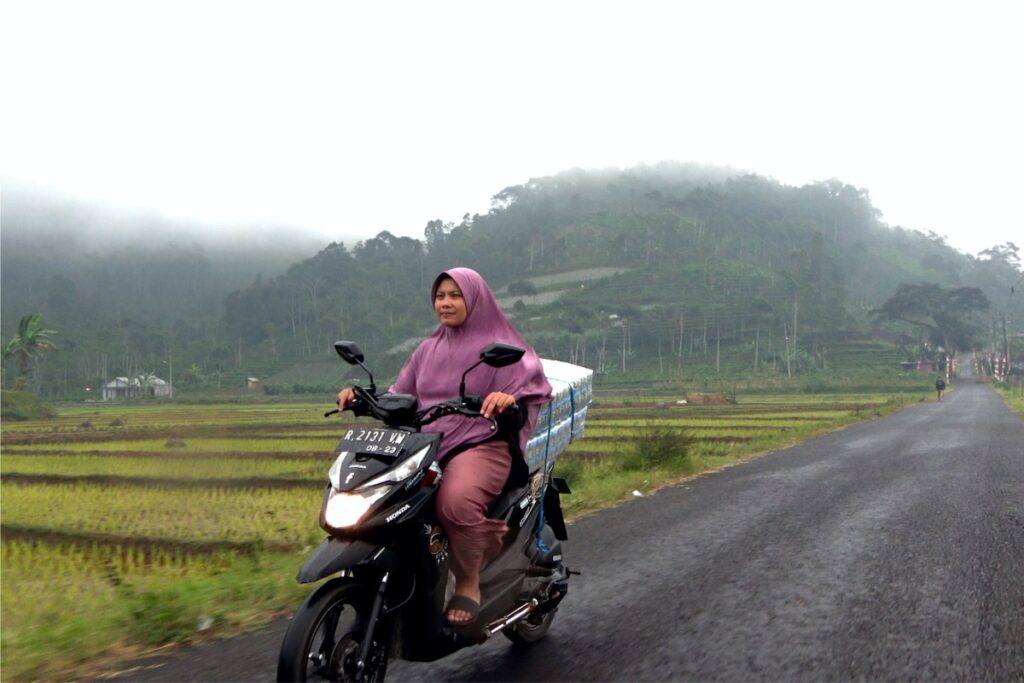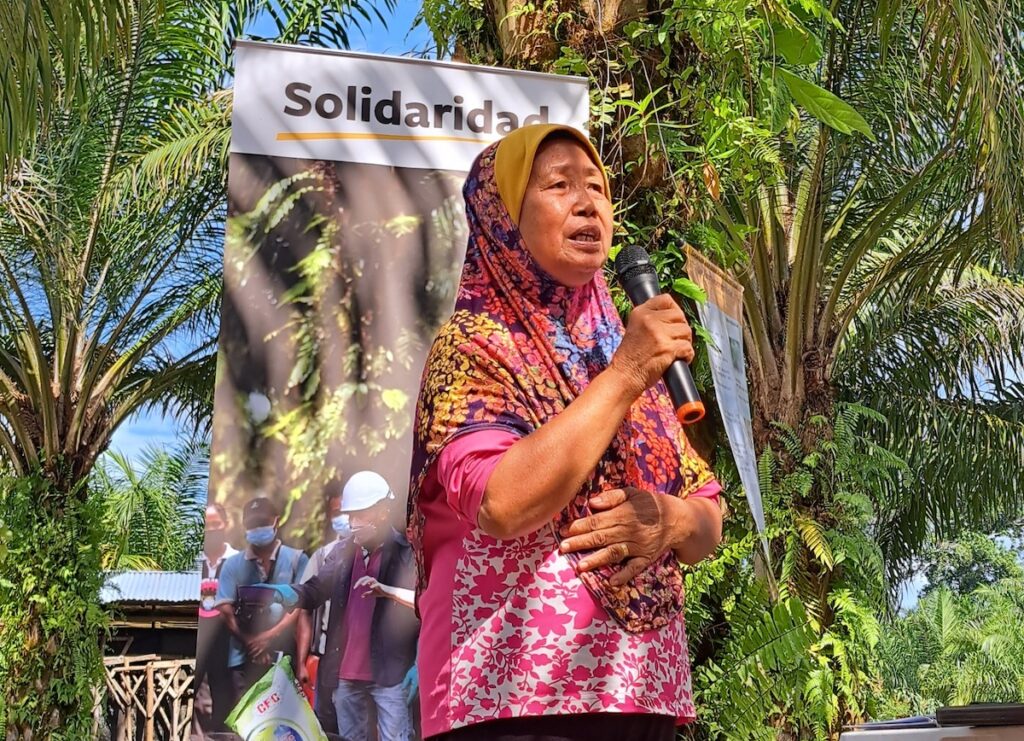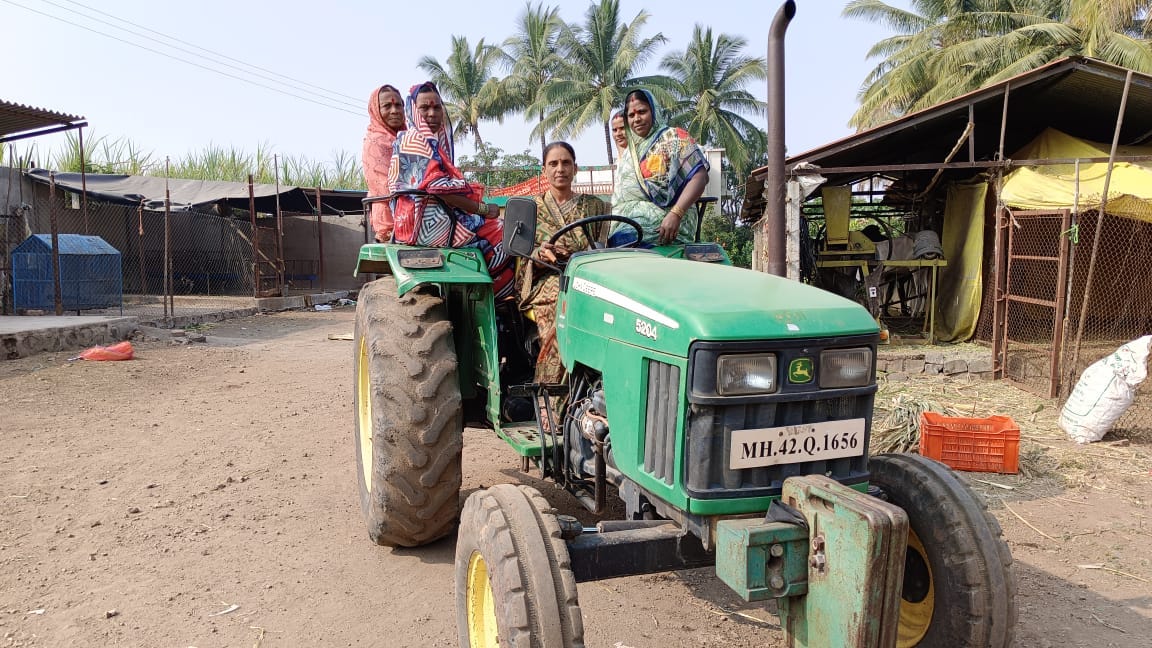Rasika Vasant Rajpure is a progressive sugarcane farmer in Maharashtra. She is an independent cultivator capable of operating heavy farm machinery. Rasika makes independent financial decisions and is a role model among her peers.
In a policy brief for G20 Brazil 2024, Rightfully HERS – Inclusion of Women in Formal Agriculture Supply Chains, Solidaridad emphasizes the need for targeted policy interventions and an enabling environment. These measures are crucial for recognizing and scaling up women’s participation in agriculture and formal supply chains.
Globally, women constitute 37 percent of the agricultural labor force. In developing countries, they produce up to 80 percent of the food. However, despite being an integral part of agricultural systems worldwide, less than one in five landholders in the world is a woman.
Of the 525 million small farmers (who own land less than two hectares in size), less than 15 percent are women — the classification being largely defined based on landholdings. Inclusivity also poses a significant problem. $11 trillion US dollars (10.5 trillion euros) is spent annually on public procurement, and only one percent of that amount is awarded to women-owned businesses (there is no available data for private-sector spending).
Additionally, while the effects of climate change have produced a well-documented migration of male smallholders, there has been little discussion of the women left behind who are managing small-scale farms and bearing an increasingly heavy burden imposed by the changing climate.

UN Women and the UN Department of Economic and Social Affairs (UN DESA) estimate that by 2030, if economic disparities persist, 340 million women and girls will still live in extreme poverty, and about 25 percent of them will face moderate or severe food insecurity.
Inclusion of women in formal agriculture supply chains
Recognizing the grave consequences of gender imbalance in agriculture, Solidaridad, in its T20 Policy Brief, Rightfully HERS – Inclusion of Women in Formal Agriculture Supply Chains, for G20 Brazil 2024, lays out a roadmap to promote gender inclusivity in agricultural supply chains. The policy brief outlines policy steps that will provide an enabling environment to ensure the inclusion of women in the larger, formal economy.
With the global demand for food projected to increase exponentially by 2050 — anywhere between 35 percent and 56 percent, compared to 2010 levels — women are indispensable to the production, distribution, and processing segments of the agricultural sector.

The evidence suggests that if women had the same access to useful resources as men, they could increase the yield on their farms by 20 to 30 percent, raising total agricultural output in developing countries by 2.5 to 4 percent.
In this context, the policy brief makes the following key recommendations:
- G20 countries redefine who a farmer is, without linking it solely to land ownership, in their agriculture, trade and finance policies.
- G20 countries establish a quota for women in public and private procurement systems and that direct cash transfers are made to the bank account of women.
- Create a G20 fund for the inclusion of women in the market system.
- Amend the Corporate Social Responsibility (CSR) section under the Companies Act of the G20 member countries to allow companies to allocate 20 percent of their CSR funds for the inclusion of women in supply chains.
- Establish a ‘Research and Learning Center for Agriculture Products and Services for Women Farmers’ — the operations of which will be directly under the command of government, and which will work with an objective to innovate, design and develop agriculture and allied products, services, tools, machinery specifically for women farmers.

Women play a vital role in global agriculture, yet systemic barriers limit their participation and economic advancement. To address this, Solidaridad’s Rightfully HERS policy brief calls for an inclusive approach that prioritizes women in procurement and establishes dedicated funding resources for women in agriculture. Working together, G20 countries can create a more inclusive and equitable agricultural landscape that supports women, enhances food security and contributes to sustainable agricultural growth.

